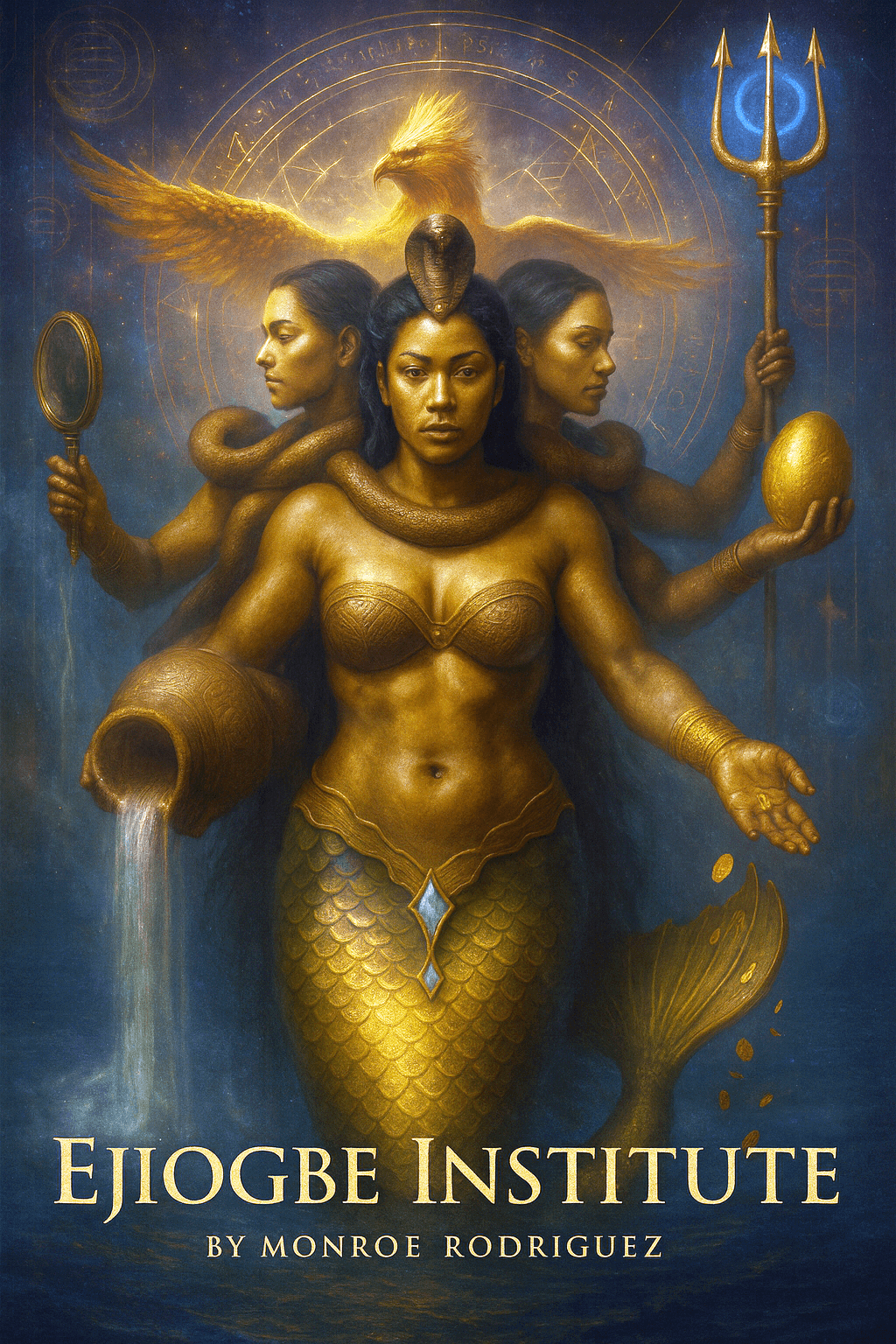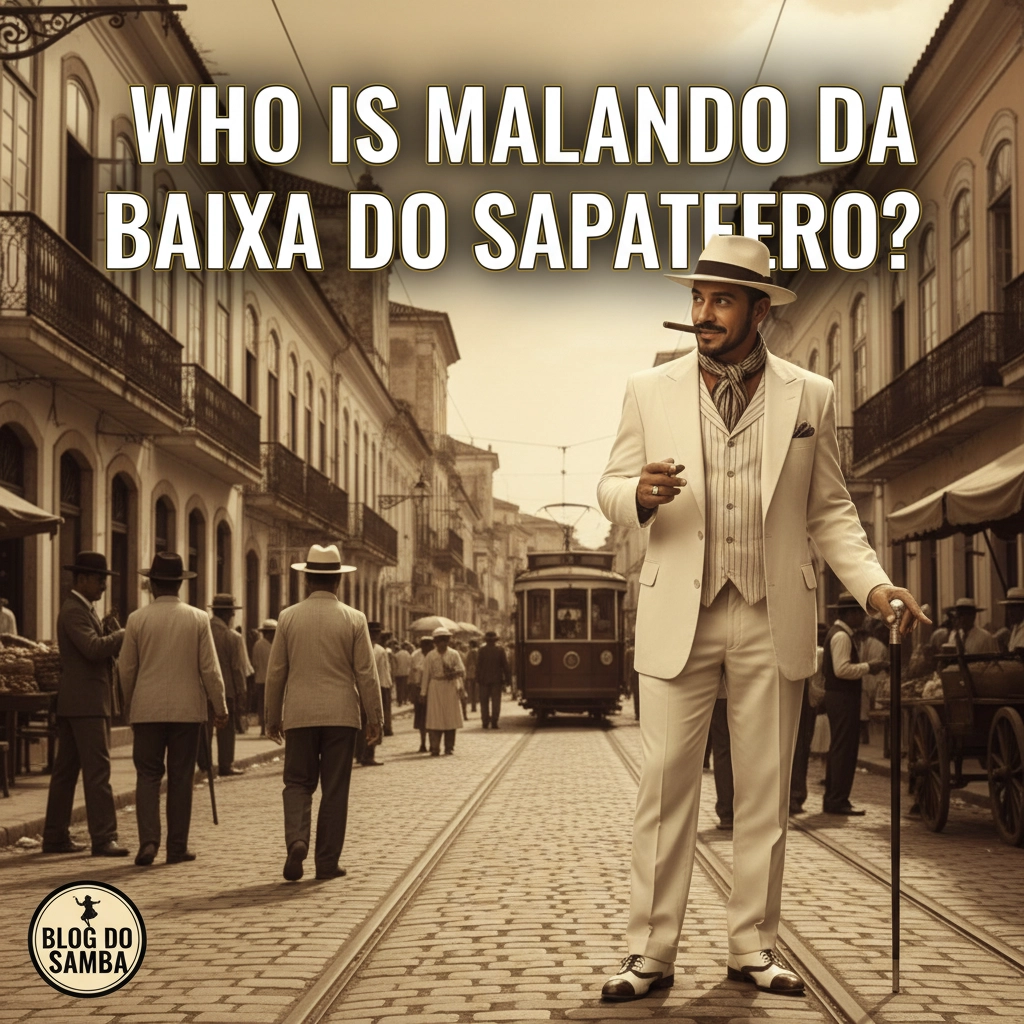Picture this: the cobblestone streets of Salvador's historic center echo with the rhythmic tap of leather shoes, the air thick with the scent of dendê oil and the soul-stirring melodies of samba. Here, where Brazil's African heritage pulses strongest, walks a figure whose very name carries the weight of centuries: Malandro da Baixa do Sapateiro. But who is this enigmatic spirit, and why does his presence continue to captivate practitioners of Umbanda and spiritual seekers worldwide?
The story isn't just about one malandro. It's about understanding how the streets of Bahia birthed spiritual archetypes that would reshape Brazil's entire mystical landscape.
The Streets That Forged a Legend
The Baixa do Sapateiro, literally "Shoemaker's Lower District": isn't just a geographical location. It's a living, breathing testament to Brazil's complex social fabric, where African traditions, indigenous wisdom, and Portuguese colonial influence converged to create something entirely new. This historic area of Salvador became the crucible where malandros were born, not just as street figures, but as spiritual archetypes representing survival, cunning, and street-smart wisdom.
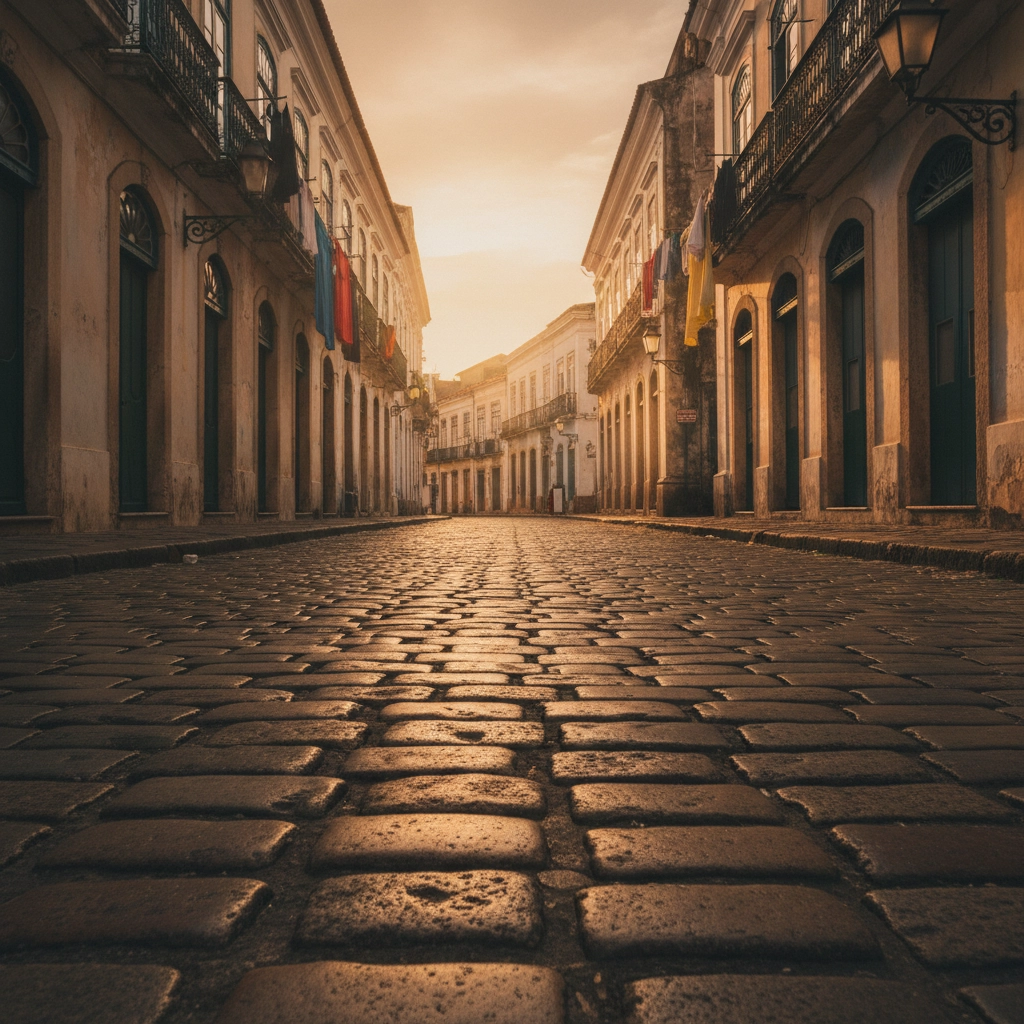
Malandro da Baixa do Sapateiro embodies the essence of this transformative space. Unlike the romanticized rogues of literature, this spiritual entity represents the raw, unfiltered reality of urban life in Brazil's most culturally significant city. He's the spirit who witnessed the daily struggles of working-class Bahians, the craftsmen, the street vendors, and the marginalized communities who built their lives in the shadows of colonial grandeur.
The cobblestones of Baixa do Sapateiro absorbed more than just footsteps: they absorbed prayers, tears, laughter, and the indomitable spirit of people who refused to be broken by circumstance. This is where our malandro learned his most powerful lessons: that true strength comes not from dominance, but from adaptability; that wisdom isn't found in books, but in the school of hard knocks.
What Makes a Malandro More Than Just a Rogue?
Many people confuse malandros with simple trickster figures or romanticize them as charming rogues. But Malandro da Baixa do Sapateiro represents something far more profound: he's a spiritual teacher disguised as a street philosopher. His archetype challenges our conventional understanding of morality, showing us that survival sometimes requires bending rules, that loyalty can exist outside legal frameworks, and that honor isn't always found in respectable places.
In the spiritual tradition of Umbanda, malandros like him serve as intermediaries between the material and spiritual worlds. They understand both the harsh realities of urban life and the subtle workings of cosmic justice. This dual knowledge makes them uniquely qualified to help those caught between worlds: the immigrants, the displaced, the misunderstood, and the marginalized.
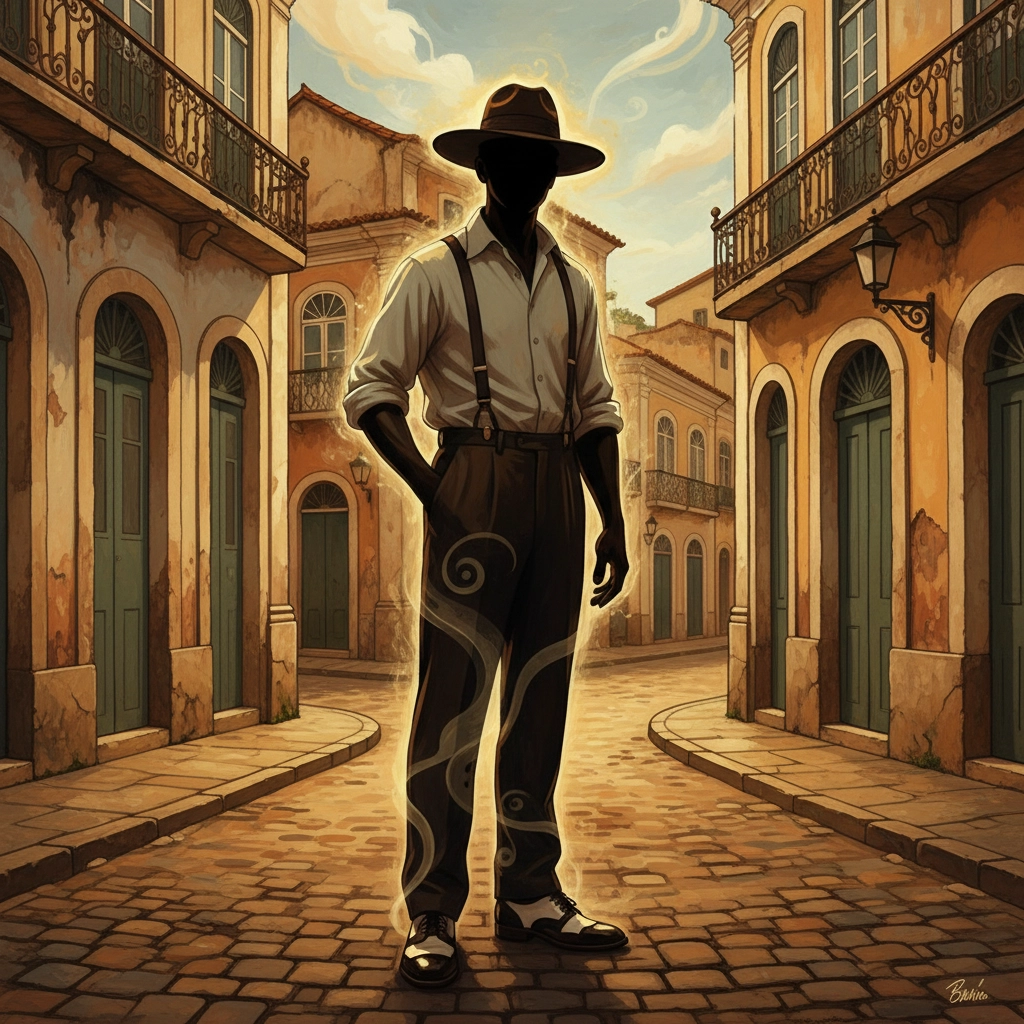
The masculine energy of Malandro da Baixa do Sapateiro isn't the toxic masculinity of domination, but the protective masculinity of the street-wise guardian. He's the older brother who teaches you how to navigate dangerous neighborhoods, the mentor who shows you which battles to fight and which to walk away from. His wisdom comes from lived experience, not theoretical knowledge.
The Spiritual Significance of Street Wisdom
Where once spiritual wisdom was confined to temples and monasteries, Malandro da Baixa do Sapateiro brings sacred knowledge to street corners and neighborhood bars. He represents a democratization of spiritual wisdom: the understanding that divine insights can emerge from the most unexpected places and people.
His connection to Bahia runs deeper than geography. Bahia represents the heart of Afro-Brazilian spiritual traditions, where Candomblé, Umbanda, and other practices flourished despite centuries of persecution. The malandro archetype that emerged from these streets carries the DNA of resistance, resilience, and spiritual innovation.
This isn't just folklore: it's living spiritual technology. Practitioners who work with Malandro da Baixa do Sapateiro report enhanced street smarts, better navigation of complex social situations, and a deeper understanding of human nature. He teaches the art of reading between the lines, of understanding what people aren't saying, and of finding opportunity in adversity.
How Does His Energy Manifest in Modern Practice?
The wisdom of Malandro da Baixa do Sapateiro translates powerfully into contemporary life. In a world of corporate politics, social media manipulation, and economic uncertainty, his teachings become more relevant, not less. He offers guidance for navigating modern "streets": whether they're made of concrete or constructed from digital networks.
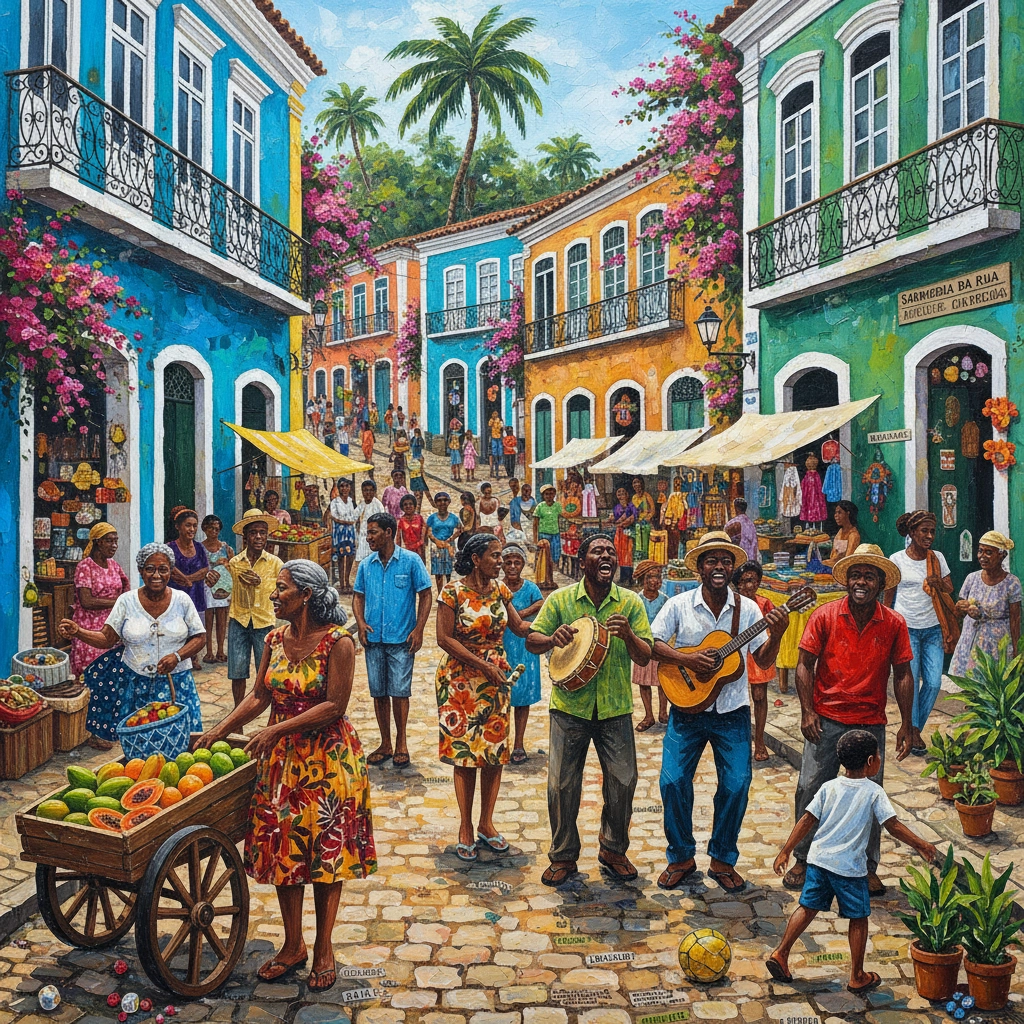
Practitioners describe his energy as simultaneously playful and protective, mischievous yet deeply loyal. He's the spirit you call upon when you need to think outside the box, when conventional solutions aren't working, when you need to understand the hidden dynamics in your workplace or social circle.
His masculine archetype provides a counterbalance to more aggressive forms of male energy. Where some spiritual traditions emphasize conquest and dominance, Malandro da Baixa do Sapateiro teaches the power of observation, patience, and strategic thinking. He shows that true masculine strength lies in protecting those who cannot protect themselves and in using wit rather than force to overcome obstacles.
The Cultural Revolution of Malandro Spirituality
We're witnessing something extraordinary in contemporary Brazilian spirituality: the elevation of street wisdom to sacred status. Malandro da Baixa do Sapateiro represents more than just one entity; he embodies a entire philosophical revolution that challenges traditional hierarchies of spiritual authority.
This isn't about rejecting established religious traditions. It's about recognizing that wisdom can emerge from any community, any background, any set of life experiences. The streets of Baixa do Sapateiro produced spiritual insights that complement and enhance more formal religious teachings.
The malandro tradition preserves and transmits crucial cultural knowledge about survival, community building, and resistance. In working with these spirits, practitioners aren't just seeking personal guidance: they're maintaining connection to a living cultural heritage that has sustained communities through centuries of challenge.
Connecting with Malandro da Baixa do Sapateiro Today
The beauty of malandro spirituality lies in its accessibility. You don't need elaborate ceremonies or expensive materials to connect with this energy. Malandro da Baixa do Sapateiro appreciates simple offerings: a glass of beer, a cigarette, a heartfelt conversation about your struggles and dreams.
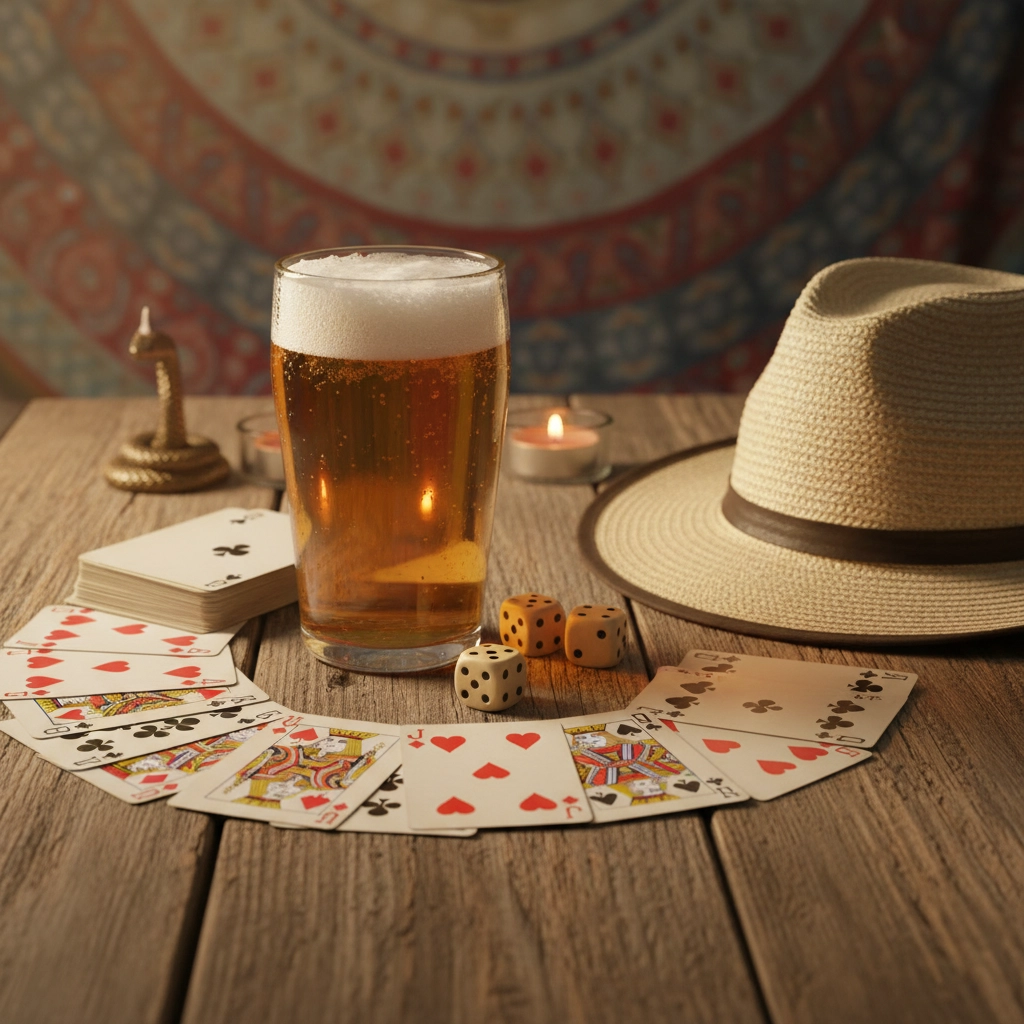
His altar might include symbols of street life: dice, playing cards, images of old Salvador, perhaps a panama hat or a pair of well-worn shoes. These aren't just decorative items: they're power objects that help practitioners attune to the frequency of street wisdom and urban survival skills.
The key to working with this malandro lies in understanding his values: loyalty, cleverness, protection of the underdog, and finding joy even in difficult circumstances. He responds to practitioners who approach him with respect for street culture and genuine desire to learn from unconventional sources of wisdom.
Why This Matters for Future Generations
The tradition of Malandro da Baixa do Sapateiro represents something crucial for our collective future: the preservation of street wisdom as a legitimate form of spiritual knowledge. In an increasingly digital world, we risk losing touch with the embodied wisdom that comes from navigating physical communities and face-to-face relationships.
These malandro traditions teach skills that can't be googled: how to read body language, how to build trust with strangers, how to find resources in unexpected places, how to maintain dignity in difficult circumstances. They preserve knowledge systems that have helped marginalized communities survive and thrive for generations.
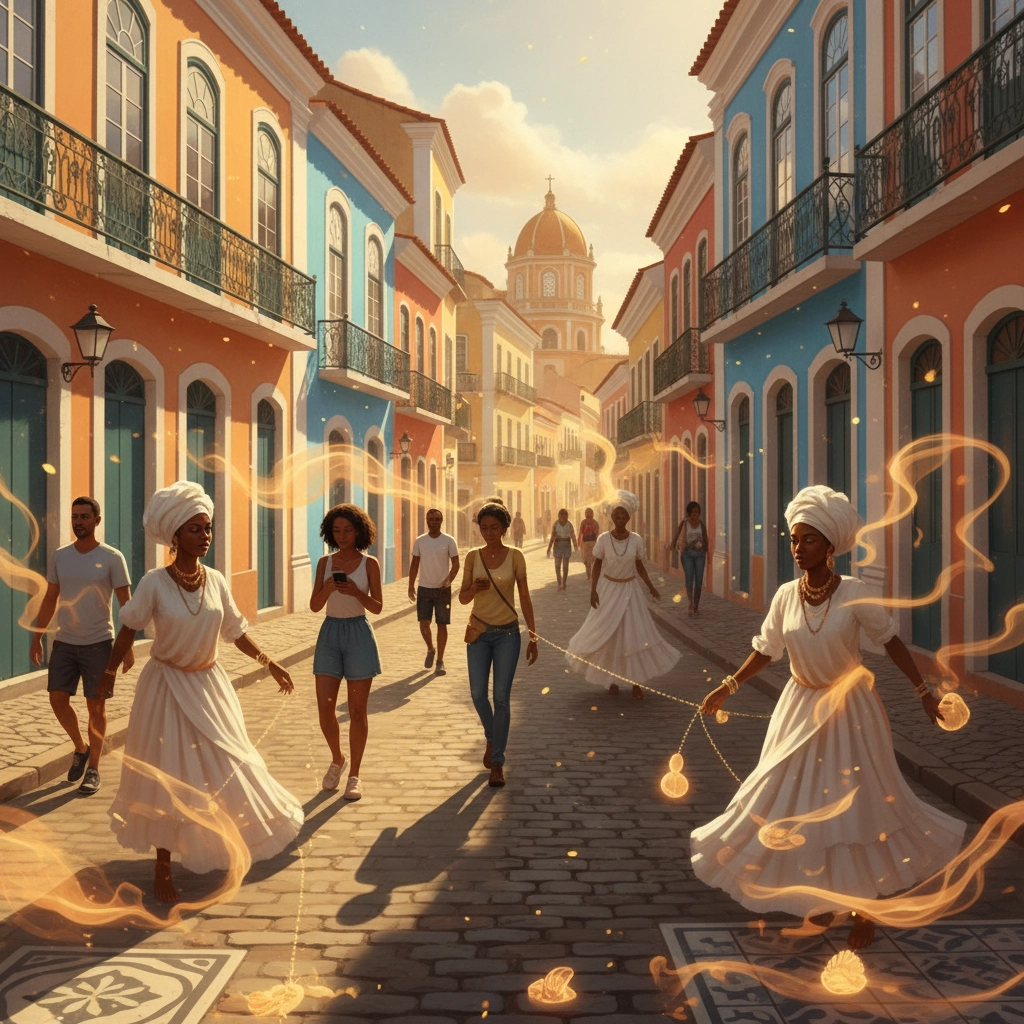
The masculine archetype represented by Malandro da Baixa do Sapateiro offers young people an alternative model of strength: one based on intelligence, loyalty, and community protection rather than aggression and dominance. This becomes increasingly important as we work to redefine healthy masculinity for new generations.
The Living Legacy of Bahian Street Wisdom
Malandro da Baixa do Sapateiro isn't just a spiritual entity: he's a keeper of cultural memory, a guardian of street wisdom, and a bridge between Brazil's complex past and its evolving future. His energy continues to flow through the streets of Salvador, through Umbanda terreiros worldwide, and through practitioners who carry his teachings into their daily lives.
The streets that shaped him continue to teach new generations of malandros, both spiritual and physical. The lessons remain constant: survive with dignity, protect your community, find joy in simple pleasures, and never lose your sense of humor: even when life gets serious.
In working with this powerful spiritual archetype, we're not just seeking personal guidance. We're participating in the preservation and evolution of a wisdom tradition that has kept communities strong through centuries of challenge. The technology serves the tradition, not the other way around.
